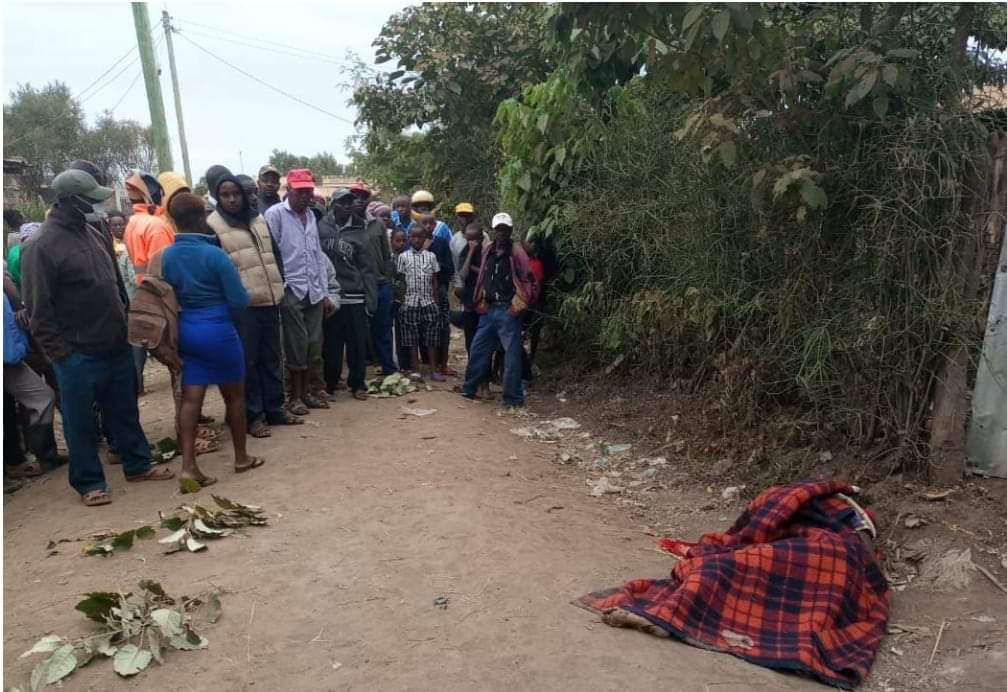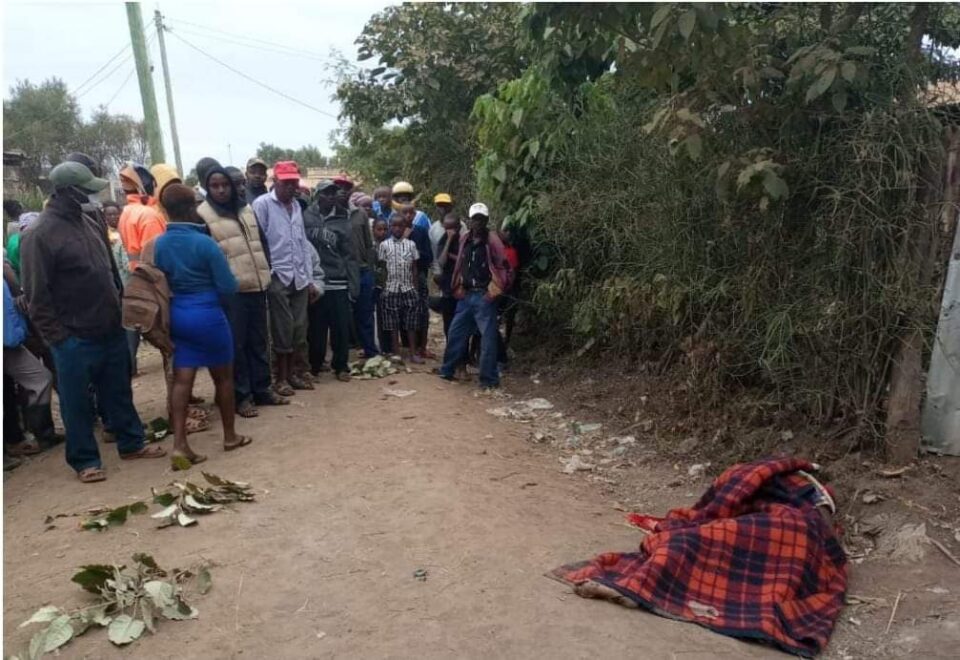Mukono District, located in the Central Region of Uganda, was recently gripped by a tragic event that has left the community in a state of shock and mourning. The incident revolves around the alleged murder of James Nsubuga, a resident of Katikamu Village, whose life was abruptly and violently ended under deeply troubling circumstances.
The initial shockwaves were felt when the lifeless body of James Nsubuga was discovered in his home. His residence, which had once been a place of safety and comfort, had become a crime scene marked by a heinous act of violence. The community was plunged into grief, struggling to comprehend how such a tragic event could occur in their midst.
As details of the incident began to surface, the narrative took an even more harrowing turn. Ruth Musimenta, the wife of the deceased, emerged as the key suspect in the murder investigation. This revelation sent ripples through the community, as the idea of a spouse being involved in such a crime against their partner is both shocking and unsettling.
Ruth Musimenta’s admission of involvement in her husband’s murder was a critical development in the case. Her confession, which likely came under intense scrutiny from law enforcement, provided the police with crucial information about the events leading up to the crime. The nature of her involvement, whether as the primary perpetrator or as an accomplice, became a focal point of the investigation.
The police’s recovery of a knife from the couple’s bedroom added a significant piece of evidence to the case. The knife, purportedly used in the murder, was found hidden within the bedroom, suggesting an attempt to conceal the weapon after the crime was committed. This discovery not only corroborated Ruth Musimenta’s admission but also provided tangible proof linking her to the act of violence.
The dynamics of the case raise numerous questions about the relationship between Ruth Musimenta and James Nsubuga. Understanding the context of their relationship, including any history of domestic issues, could offer insights into the possible motives behind the murder. Investigators would likely delve into the couple’s background, seeking to uncover any patterns of conflict or abuse that might have culminated in such a tragic outcome.
The legal proceedings that follow such an admission are crucial in determining the course of justice. Ruth Musimenta’s confession, while significant, must be weighed alongside other evidence and witness testimonies. The judicial process will aim to establish a comprehensive understanding of the events, ensuring that the truth is revealed, and justice is served.
In a broader sense, this incident highlights the pervasive issue of domestic violence, which remains a significant concern in many societies, including Uganda. The murder of James Nsubuga is a grim reminder of the extreme consequences that can arise from unresolved domestic conflicts. It underscores the importance of addressing domestic violence through preventive measures, support systems for victims, and stringent legal frameworks to deter potential offenders.
For the community of Katikamu Village and the wider Mukono District, the mourning process is accompanied by a collective introspection about the factors that might have contributed to this tragedy. The loss of James Nsubuga is not just a personal blow to his family and friends but also a communal trauma that demands a response.
Community leaders and local authorities are likely to engage in discussions about strengthening support networks for individuals facing domestic issues. These discussions might include increasing awareness about the signs of domestic violence, providing accessible resources for those in need, and fostering a community environment where individuals feel safe to seek help.
The role of the police in handling such sensitive cases is also of paramount importance. Their approach to investigating the murder, supporting the victim’s family, and ensuring a fair and transparent judicial process will be closely watched. Building trust between law enforcement and the community is essential, especially in the wake of such a disturbing event.
Moreover, the media’s coverage of the incident plays a critical role in shaping public perception and response. Responsible reporting that balances the need for information with sensitivity to the affected families can help foster a constructive dialogue about preventing future tragedies. Media can also be instrumental in highlighting the broader issue of domestic violence, advocating for policy changes, and promoting community support initiatives.
As the case against Ruth Musimenta unfolds, it will serve as a somber case study of the complexities involved in domestic violence cases. The legal system’s response, the community’s healing process, and the preventative measures put in place thereafter will collectively determine the lasting impact of this tragic event on Mukono District.
Mukono District, located in the Central Region of Uganda, was recently gripped by a tragic event that has left the community in a state of shock and mourning. The incident revolves around the alleged murder of James Nsubuga, a resident of Katikamu Village, whose life was abruptly and violently ended under deeply troubling circumstances.
The initial shockwaves were felt when the lifeless body of James Nsubuga was discovered in his home. His residence, which had once been a place of safety and comfort, had become a crime scene marked by a heinous act of violence. The community was plunged into grief, struggling to comprehend how such a tragic event could occur in their midst.
As details of the incident began to surface, the narrative took an even more harrowing turn. Ruth Musimenta, the wife of the deceased, emerged as the key suspect in the murder investigation. This revelation sent ripples through the community, as the idea of a spouse being involved in such a crime against their partner is both shocking and unsettling.
Ruth Musimenta’s admission of involvement in her husband’s murder was a critical development in the case. Her confession, which likely came under intense scrutiny from law enforcement, provided the police with crucial information about the events leading up to the crime. The nature of her involvement, whether as the primary perpetrator or as an accomplice, became a focal point of the investigation.
The police’s recovery of a knife from the couple’s bedroom added a significant piece of evidence to the case. The knife, purportedly used in the murder, was found hidden within the bedroom, suggesting an attempt to conceal the weapon after the crime was committed. This discovery not only corroborated Ruth Musimenta’s admission but also provided tangible proof linking her to the act of violence.
The dynamics of the case raise numerous questions about the relationship between Ruth Musimenta and James Nsubuga. Understanding the context of their relationship, including any history of domestic issues, could offer insights into the possible motives behind the murder. Investigators would likely delve into the couple’s background, seeking to uncover any patterns of conflict or abuse that might have culminated in such a tragic outcome.
The legal proceedings that follow such an admission are crucial in determining the course of justice. Ruth Musimenta’s confession, while significant, must be weighed alongside other evidence and witness testimonies. The judicial process will aim to establish a comprehensive understanding of the events, ensuring that the truth is revealed, and justice is served.
In a broader sense, this incident highlights the pervasive issue of domestic violence, which remains a significant concern in many societies, including Uganda. The murder of James Nsubuga is a grim reminder of the extreme consequences that can arise from unresolved domestic conflicts. It underscores the importance of addressing domestic violence through preventive measures, support systems for victims, and stringent legal frameworks to deter potential offenders.


